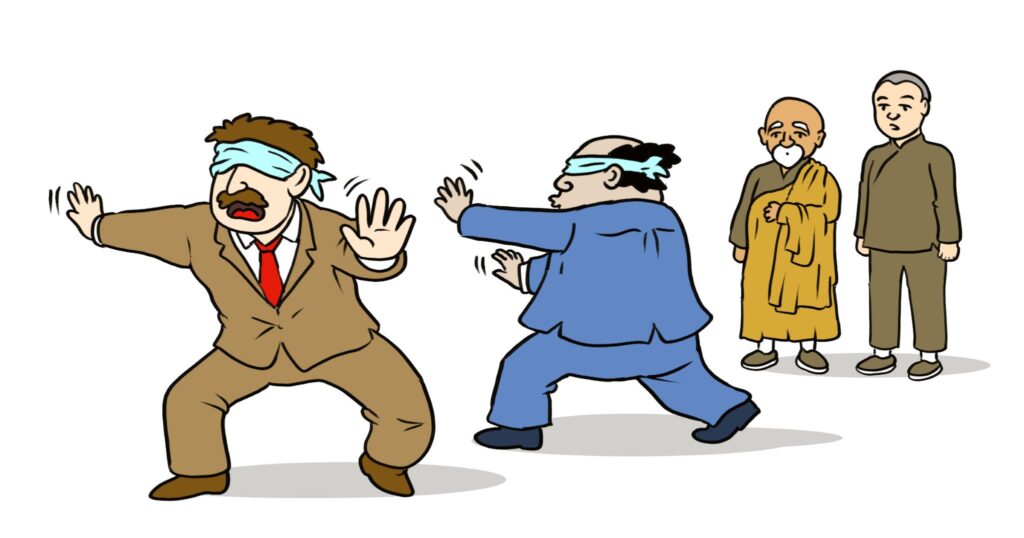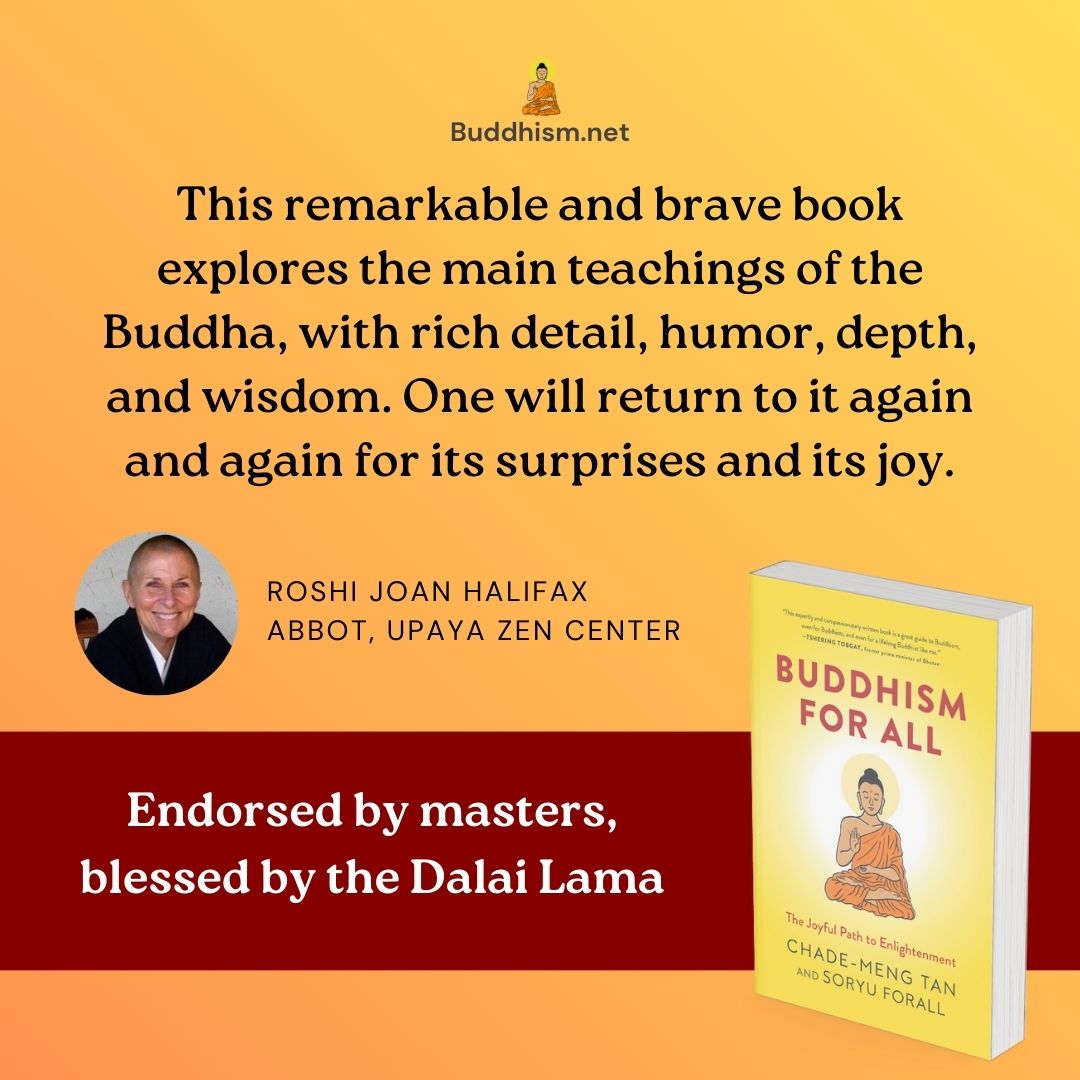
“They are here to conduct the double-blind experiment.”
The spirit of inquiry is one of the most important aspects of Buddhist practice. We have seen earlier that, “investigation of phenomena” (dhamma vicaya) is one of the seven factors of enlightenment. I’m going to say it again in case you missed the significance: the spirit of inquiry is so important in Buddhism it is a factor of enlightenment.
This spirit of inquiry expands to all things, even towards the Buddha himself. There is a very famous discourse that illustrates this. It is officially titled the Kesamutta Sutta (“Discourse spoken in Kesamutta”)[1] after the town it was delivered in, but it is very popularly known as the Kālāma Sutta after the people it was delivered to.
Once the Buddha was in a town called Kesamutta populated by a people called the Kālāmas. They knew the Buddha by reputation, so when the heard that the Buddha was in town, they gathered to see him. This town got visited by many famous teachers, so they asked the Buddha, “Every teacher who visits us promotes his own doctrine and then disparages and badmouths the doctrines of all other teachers. How do we know who to believe?” Being the Buddha, he could have just said, “You believe me, duh.”[2] Instead, he delivered a discourse on how to apply the spirit of inquiry to any teaching, including his own. He listed ten criteria which are not sufficient for accepting any spiritual teaching:
- oral transmission
- lineage of teaching
- hearsay / rumor
- holy scriptures
- logical reasoning
- inferential reasoning
- reasoned contemplation
- acceptance of a view after pondering it
- the seeming competence of the speaker
- the fact that the speaker is one’s own teacher
The Buddha then spoke of the criterion to accept a spiritual teaching: after examining a teaching for yourself, you know it is wholesome and leads to benefit and happiness, for oneself and others.
But how do you know that? Here, the Buddha suggested to examine this question deeply for yourself: are greed, hatred and ignorance causes of suffering or causes of happiness? If they are causes for suffering, then use that as the yardstick for measuring any teaching by asking yourself: does this teaching increase or decrease greed, hatred or ignorance? With that, you will know the answer to whether or not to accept a teaching.
In other words, do not accept any teaching solely because it comes from your teacher (including the Buddha) or sacred scripture, or any of the above ten criteria. Instead, investigate it yourself, with its effect on greed, hatred and ignorance as the most useful yardstick, and then decide for yourself.
There is a teaching in Tibetan Buddhism that frames the same thing in a way I find very understandable: Just as a goldsmith would test his gold by burning, cutting, and rubbing it, so you must examine the Buddha’s words, not merely accept them out of faith.[3]
In a separate discourse called the Vīmaṁsaka Sutta (“Inquirer Discourse”),[4] the Buddha made it explicit that his disciples should investigate him. He did not say “you should investigate your teachers” and implicitly include himself, no, instead he explicitly said (referring to himself in third person as the Tathāgata), “A monk who is an inquirer, who is unable to read minds, should investigate the Tathāgata to find out if he is really enlightened.” And then he spent the rest of the discourse explaining how they can do that. The steps include:
- Examine the Teacher with your eyes and ears to see if his daily actions are compatible with one of a pure heart.
- See whether fame and renown cause any danger to the Teacher.
- Find out if he is without greed and lust, and whether he indulges in sensual pleasure.
- See if he despises anyone (a buddha doesn’t).
- Ask him if he needs to restrain his behavior out of fear, or if he doesn’t have to because he is already without lust.
- Don’t be shy to ask him point blank whether his heart is pure.
The Buddha concludes, “When anyone’s faith has been planted, rooted, and established in the Tathāgata through investigating him thoroughly, his faith is said to be supported by reasons, rooted in vision, firm. That is how an investigation of the Tathāgata is in accordance with the Dharma.”
I’m fascinated. Rarely have I come across any religious or spiritual leader who actively teaches that any faith you have in him must come from an investigation of him. It is no wonder that any religious or spiritual tradition founded by such a man should have the spirit of inquiry deeply embedded in. And it is no wonder that more than two thousand years later, the Dalai Lama is so comfortable with scientific inquiry.
Activities
- Reflect on this post with Angela:
- If you currently have a spiritual teacher, we recommend that you take note of this list of questions to examine your teacher, as taught by the Buddha:
- Examine the Teacher with your eyes and ears to see if his daily actions are compatible with one of a pure heart.
- See whether fame and renown cause any danger to the Teacher.
- Find out if he is without greed and lust, and whether he indulges in sensual pleasure.
- See if he despises anyone (a buddha doesn’t).
- Ask him if he needs to restrain his behavior out of fear, or if he doesn’t have to because he is already without lust.
- Don’t be shy to ask him point blank whether his heart is pure.
- What stood out to you from this article? Why?
- If you currently have a spiritual teacher, we recommend that you take note of this list of questions to examine your teacher, as taught by the Buddha:
References:
[1] Aṅguttara Nikāya 3.65.
[2] Fascinatingly, in the parallel of this discourse in the Chinese Āgamas, the Buddha actually said that the Kālāmas should just accept what he said. It is one of very few instances where the Āgamas disagreed meaningfully with the Nikāyas. Which one is correct? Fortunately, in the even more important Vīmaṁsaka Sutta where the Buddha said his disciples should closely investigate him, both the Āgamas and Nikāyas versions agree. This, and the overriding importance the Buddha placed repeatedly on investigation everywhere else, gives me confidence that the version in the Nikāyas is correct.
[3] Śrīmahābālatantrarāja tantra.
[4] Majjhima Nikāya 47.
Also see: The Dalai Lama considers himself half a scientist.
Artwork by Colin Goh.

